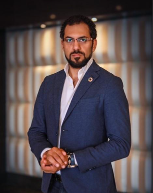The Class
This applied, gender-responsive class explores how artificial intelligence (AI) and machine learning can accelerate climate action while upholding ethics and inclusion. We cover practical applications for climate action, from forecasting risks and strengthening adaptation planning to optimizing systems and behaviors for mitigation, alongside key considerations before using AI (data quality and protection, transparency, accountability, human oversight). We interrogate challenges—bias, explainability, governance, equity, and capacity gaps—and examine gender bias and discrimination risks across the AI lifecycle, with safeguards that center diverse women and marginalized groups. We also scan emerging AI tools for climate action and conclude with examples of building no-code custom AI GPTs for knowledge management, campaigns, and research.
The Teacher

Nala Amirah is a youth leader and founder working at the intersection of youth and women’s empowerment, sustainability, and green skills development. At just 15, she founded Green Welfare Indonesia, a women-led initiative advancing environmental education through multidisciplinary capacity-building programs, collaborating with multilateral organizations, corporations, and national governments. Her team implements annual programs to integrate and strengthen climate curricula in educational spaces, conducting training on interdisciplinary sustainability topics for 130+ youth alumni, authoring five education modules and one insight report, and engaging over 12 schools and 85,000 youths. Internationally, she has spoken at 50+ forums, was among the first WSIS Youth Campaigners with ITU, and is a member of the UN Women 30 for 2030.

Federica Tornincasa is a Programme Analyst on Innovation, AI and Green Skills for Gender Equality at UN Women’s Regional Office for Asia and the Pacific. Over 14 years with NGOs and UN Agencies (UNICEF, UNESCO, UN Women), she has worked across Asia, Africa, Latin America and Europe, training more than 3,000 young people (including migrant and refugee youth, youth with disabilities, Indigenous and LGBTQIA+ youth) and equipping over 800 teachers, youth workers and frontline practitioners to foster meaningful, inclusive youth engagement.<br /> She is part of the core team delivering the UN Women Asia-Pacific AI School, equipping 100+ women, young activist, CSOs members, UN Staff and policy makers from 25 countries with gender-responsive AI skills. She also coordinated the development of UNICEF’s AI-powered “OPS!” app for data collection and training on unconscious bias, and supported UNESCO in launching the Women 4 Ethical AI East Africa chapter.

Emad Karim leads Advocacy, Campaigns, and Innovation at UN Women’s Regional Office for Asia and the Pacific. With over 15 years of experience spanning the Asia-Pacific and MENA regions, as well as at UN Headquarters, he works in advancing development through innovation and technology. Emad holds an M.A. in Educational Communication and Technology from New York University and is a Microsoft Certified Solutions Developer, specializing in ICT for development.<br /> In his role at UN Women, he founded the UN Women AI School, a pioneering initiative that introduces UN personnel and development practitioners to the foundational concepts of artificial intelligence, including ethical considerations, productivity tools, and the intersection of gender and AI.
When & Where
Monday, 27 October 2025 at 12pm (CET)
Video conference Zoom
Additional Learning Resources
- United Nations University (UNU). Harnessing the Power of AI for Climate Change Impact Assessment
-
Google Earth Engine. Satellite Embedding Introduction (tutorial)
-
UN Women AI School: https://asiapacific.unwomen.org/en/partnerships/ai-school
